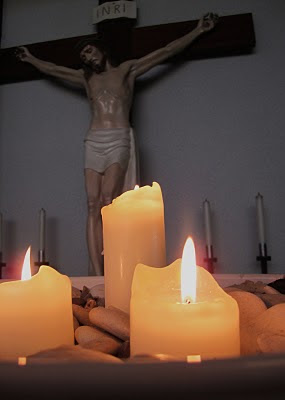Take a Seat
Gospel Luke 14:1,7-14
On a sabbath day Jesus had gone for a meal to the house of one of the leading Pharisees; and they watched him closely. He then told the guests a parable, because he had noticed how they picked the places of honour. He said this, ‘When someone invites you to a wedding feast, do not take your seat in the place of honour. A more distinguished person than you may have been invited, and the person who invited you both may come and say, “Give up your place to this man.” And then, to your embarrassment, you would have to go and take the lowest place. No; when you are a guest, make your way to the lowest place and sit there, so that, when your host comes, he may say, “My friend, move up higher.” In that way, everyone with you at the table will see you honoured. For everyone who exalts himself will be humbled, and the man who humbles himself will be exalted.’
Then he said to his host, ‘When you give a lunch or a dinner, do not ask your friends, brothers, relations or rich neighbours, for fear they repay your courtesy by inviting you in return. No; when you have a party, invite the poor, the crippled, the lame, the blind; that they cannot pay you back means that you are fortunate, because repayment will be made to you when the virtuous rise again.’
Interesting that this Gospel comes in the exam season; a time when the hierarchy of life first starts to raise its ugly head in earnest. Whether it’s places at Grammar schools, counting A stars in GCSE’s or UMS points for university places. Young people begin to understand that we may have all been born equal but that that equality does not last long.
The world all too quickly becomes a place for haves and have-nots; houses, holidays, cars, driving lessons, friends in high places, faces that fit. And into this melee we try to find a seat with our name on it. And we hope that the seat is at least more than halfway up the table and that we find ourselves sitting with people who are on our level; who are like us.
Which is, of course the other thing - that we often seek out those who are ‘like us’; from football teams to music preferences to the language we speak to the colour of our skin to our abilities and disabilities; it is so much for comfortable to be with people who remind us of us; who remind us of what we like about us.
What follows then is ‘them and us’ and all the many reasons to criticise other people’s behaviour, lifestyle, attitude simply because they are ‘them’ and not ‘us’. What starts as opportunities for hospitality and sharing, is quickly given over to judgement and confirmation of status.
This behaviour, this attitude, this way of thinking has gone on since humanity began living in community and those that study community and society would probably say that, whilst seeking common ground is preferable, in the main, group identity is a good thing; judging others is unavoidable; conflict and exclusion is humanity’s way of dealing with what is strange and unknown.
Well, maybe it used to be, but someone came along and modelled another way of looking at people; of deciding status; of judging others; by not doing it.
Jesus looks into our hearts. And in there, somewhere below the critical, damaged, sinful, proud, poverty stricken layers is that Divine spark that makes us God’s. That’s the ‘us’ that Jesus sees; the ‘us’ that is undeniably beautiful, unique and ‘connected’.
In the weekday Gospel readings, Jesus has been rebuking the Pharisees for their measured hypocrisy; using the Law to exclude those it was intended to protect; protecting the self-serving behaviour it was meant to exclude. The word ‘hypocrites’ is a theatrical word for those who wear a mask. The world can easily become a masquerade ball with only the privileged few invited.
But then we all have a mask of some kind or other; and for some of us they are very elaborate indeed; combining all the elements of status and authority that we need to take the right place in the theatre of life.
Jesus is sitting at the back in the cheap seats and shouting at us to come and join him. But would you be prepared to give up your seat?
Jesus loves us all, but he shows a fondness for honest people, or rather people who are honestly themselves; the poor, the unclean, the lame – the ones who have given up wearing the masks of society. Even the rich can be honest, although it may be more difficult; but Jesus makes friends across the width, depth and breadth of society. He will sit with the greatest and the least; providing food and family. The celebration of the Eucharist tells us this is true. All are welcome and there is room for all.
Interesting, as well, that it would have been Mother Teresa’s 100th birthday last week; for she lived by this Gospel. Moving herself further and further down the table; until there was no-one in her eyes who was beneath her.
She said that people imagined that the role of her and her sisters was to care for the poor; it wasn’t – it was to fulfil the Great Commandments; the definition of hospitality - to love as Jesus loves.
wordinthehand2010




Comments